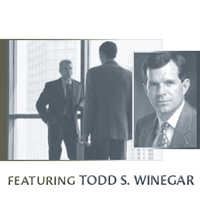 Estate Litigation 2003
Estate Litigation 2003
Course Date: October 17, 2003
Estate Litigation 2003
Course Date: October 17, 2003
Morning
The Basis of Understanding: How Jurors, Judges, Witnesses, and Lawyers Learn and Recall Information
- factual, emotional, and false memory
- right and left brain distinctions
- three important memory principles
- memory and ethics in preparing your client
- reconstructing memory
- learning from the world’s best memory
Communication: The Instrument of Persuasion
- what you say is often not what they hear
- three levels of communication
- communicating credibility
- selecting appropriate vocabulary
The Decision Process
- judge or jury—placing your influence where it works
- how bias, reason, and memory are used to decide
- jury research on the decision process
Lunch (on your own)
Afternoon
Arguments: How to Construct Arguments That Persuade
- common errors in constructing arguments
- locating weaknesses in your opponent’s arguments
- structuring testimony and arguments
Persuasion: Combining Memory, Decision Theory, Communication Principles, and Arguments to Get the Best Results
- persuading with the opening statement
- the psychological basis of persuasion
- three rules of persuasion
Practical Applications
- trials, oral arguments, negotiations, briefs, and other persuasive settings
- “Kissing the Blarney Stone”—how to make sure you use persuasion principles
Contributor(s):

